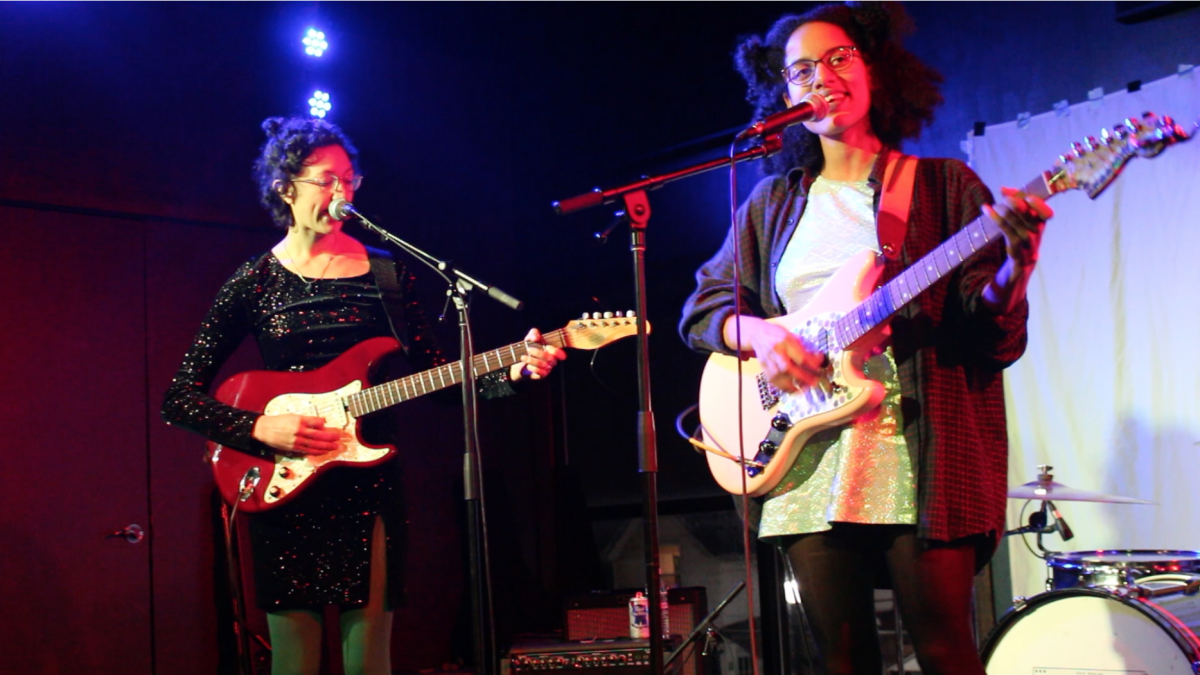
The Athens DIY Community Works to Diversify the Local Music Scene
By: Tanner Bidish
Posted on:
Picture this: You are at somebody’s house – or at least, it used to be. It has since been converted to a DIY venue, where bands travel from all over the state – or country- to play. The couches that once sat in the center of the living room have been pushed up against the walls to make room for a large PA system. The room smells of stale beer and second-hand smoke wafts in from the back patio. It’s hot, and you’re a little sweaty, there are butterflies in your stomach. The crowd murmurs and buzzes with pre-show hype as the next band gets set up. You take a second to look at who’s in attendance, and you notice something weird. They don’t look like you. Or maybe, it’s that you don’t look like them. And you start to wonder if the butterflies are something other than excitement. Allegra Solomon, a person of color and an active member of the Athens DIY community has had a similar experience.
“I’d go to shows and my parents would say, “Who’d you see?” I’d be like “this person” and they wouldn’t know who that is,” Solomon says. “They’d always just be like, “Do you ever see black people at all these shows you go to?” And I’d be like, “No…” I’m just like… Is that bad? Is that weird? Is that not normal??”
For students like Allegra, shows can be a great way to blow off steam, have a good time, and be a part of a community. But there are hurdles to overcome when making a community as inclusive as possible. Eli Schoop, another person of color and music enthusiast, agrees.
“In terms of DIY, the white gaze is always going to be there – and you’re othered – it’s not any one person’s fault. It’s just how culture works against nonwhite people against the dominant race, and so I don’t think you can really do anything to change that from a holistic perspective,” says Schoop.
The alienation of a person, or a group of people, is particularly relevant to people of color because they can’t conceal that outward part of their identity. However, aspects of alienation, or othering, reach across the spectrum of diversity. For LGBTQ plus performers, the choice of ‘being out’ with an audience can affect the degree they’re othered. Emma Schultz, or rather No Stars, knows the ins and outs of making that decision when performing.
“I’ve felt comfortable playing DIY shows, singing songs that were overtly queer. I’ve never felt like I’d get retaliation for that. When I have played shows in other spaces that aren’t DIY spaces there’s a lot more apprehension to sing songs that are about liking girls”
The DIY scene doesn’t lack effort, however. Central DIY venues, Station 116, The New Happiness and The Babe Cave all claim to be safer spaces, and take steps to make their communities comfortable. When looking at show bills taken from May to October of 2017, they showed that over 50% of DIY acts during that time were white men. About 40% were nonmale, and even few were people of color. Booking diverse acts can be a challenge in rural Appalachia.
“I feel like the line between tokenization and trying to be better is very, very fine,” Solomon says. “It’s hard to know when it’s being tokenized and when people are trying to do their best. In my experience, the places I’ve been to, you can tell in their hearts that they’re doing what’s best for the space and will be representative.”
Tokenization is the act of including minorities just for the portrait of diversity.
Defining where and when people’s efforts are genuine can be a challenge. Schoop says, “If you already have these people in mind beforehand instead of adding to a quota, you’re processing this issue in a way that’s more than just having an image of this diverse culture.”
The image of diverse culture has become a bit of a commodity in the larger music industry. Not only are commercial venues dominated by men – as shown by a 2017 statistic from Pitchfork showing that three-quarters of major festival lineups were male – but also when minorities are included it’s not genuine.
“They know that if you put artists that a specific audience likes, then certain people will show up; You put Migos on a fest, all these black people are gonna come. That also goes for the Grammys and stuff like that. Beyoncé and Kendrick are performing, but Kendrick doesn’t win album of the year, Solomon says. “It’s to draw a crowd, but not reward them. You like the culture, but you’re not paying them their dues.”
For now, things in Athens are okay. It’s more inclusive and more honest than commercial venues. It’s still not perfect, but people are making an earnest effort and taking strides in the right direction.

